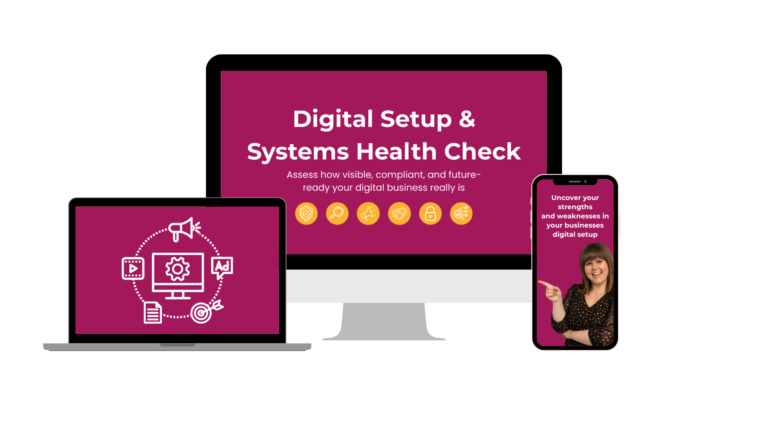Introduction

In today’s dynamic job market, digital competence is not just an advantage—it is essential!
As technology continually reshapes how businesses operate and deliver services, having a robust set of digital skills is crucial for anyone looking to stay competitive and adaptable.
This comprehensive guide dives deep into the importance of digital skills development and outlines effective strategies for nurturing these skills.
Why Digital Skills Are Crucial Across Industries

Technology has permeated every industry, altering the landscape of jobs and creating new opportunities.
Here’s a closer look at how digital skills play a pivotal role in several key sectors:
- Finance: In finance, digital skills like data analytics and blockchain understanding can significantly enhance accuracy and decision-making processes.
- Healthcare: Digital proficiency in healthcare can improve patient care through advanced diagnostic tools and data-driven treatment plans.
- Retail: E-commerce and digital marketing skills are vital as shopping continues to shift online.
- Education: Educators need digital skills to develop and deliver engaging, interactive online learning experiences.
Understanding these industry-specific impacts can help professionals tailor their learning paths to meet the evolving demands of their sectors.
The Digital Skills Spectrum
Digital skills encompass a wide range, from basic computer knowledge to advanced programming.
Here are some key skills that are highly valued in today’s job market:
- Cybersecurity: Protecting data and networks.
- Cloud Computing: Managing and storing data effectively.
- Artificial Intelligence: Automating and optimising tasks.
- Big Data Analysis: Interpreting large sets of data to make business decisions.
- Software Development: Creating and testing software applications.
- Digital Marketing: Engaging audiences through digital channels.
Pathways to Developing Digital Skills

Acquiring new skills can be daunting, but many pathways can facilitate this learning:
- Formal Education and Online Courses: Many platforms offer courses that cater to different learning styles and schedules. Websites like Coursera, Udemy, and LinkedIn Learning provide courses in everything from basic computer applications to advanced coding.
- Bootcamps and Workshops: Intensive bootcamps provide hands-on learning experiences that are focused on specific skills like coding, data analytics, or digital marketing.
- Self-Learning: Resources such as tutorials, e-books, and forums can assist self-starters who prefer to learn at their own pace.
- Corporate Training: Many employers now offer digital skills training programs to help their employees stay current with technological advancements.
Integrating Skills into Your Professional Life

Developing skills is one thing, but integrating them effectively into your career is another.
This can be achieved through:
- Project Implementation: Apply your new skills to real-world projects at work. This not only helps solidify your learning but also demonstrates your competence to employers.
- Freelancing: Take on freelance projects that require digital skills. This can provide practical experience and potentially lead to new job opportunities.
- Networking: Connect with other digital professionals. Networking can open up new avenues for collaboration and learning.
Challenges in Digital Skills Development

While the benefits of acquiring digital skills are clear, several challenges can impede progress:
- Rapid Technological Change: Keeping up with fast-paced technological advancements can be overwhelming.
- Access to Resources: Not everyone has easy access to the latest learning platforms or technology.
- Balancing Learning with Responsibilities: Finding the time to learn new skills while managing work and personal life can be challenging.
Overcoming These Challenges
To effectively overcome these barriers, consider the following strategies:
- Set Clear Goals: Define what you need to learn and why. This will help you stay focused and motivated.
- Create a Learning Schedule: Dedicate specific times for learning. This can help manage your time efficiently.
- Seek Support: Whether it’s from colleagues, online communities, or mentors, getting the right support can enhance your learning experience.
Conclusion

In the rapidly evolving digital landscape, developing digital skills is crucial for professional growth and adaptability.
By understanding the importance of these skills, embracing various learning pathways, and applying new knowledge, professionals can ensure they remain relevant and competitive.
Start today by identifying the skills most crucial for your career and taking the first step towards mastering them.
Interested in Digital Skills Training?
Find your perfect match using Technology Coachings’ Course finder tool


